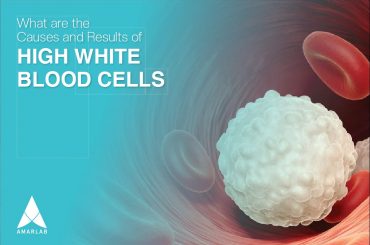A Platelet count is a significant part of the Complete Blood Count (CBC) test. This is generally a blood test to measure the average platelet numbers in the blood. CBC is an essential test that provides the details of various blood cells present in the body.
Platelets are one of those blood cells, also known as Thrombocytes, that originate in the bone marrow from cells.
What is a Normal Platelet Count?
The platelet count test gives the total number of platelets per microliter (mL) of blood in a human body. The ideal range of platelets is 150,000 to 400,000 per mL for any healthy person.
You can do this test on its own or as a part of the CBC test. The doctor will suggest to a patient which is better to do, depending on the health condition.
Why is Platelets Count Important?
Platelets are the parts of blood that are responsible for blood clotting and preventing excessive bleeding in wounds of the body. The whole process of alleviating the outcome of an injury takes place in three vital steps:
- When you get injured and any blood vessel is affected, the brain sends signals to the platelets. Then these tiny blood cells rush to the damaged spot.
- The platelets start to form clots to stop further bleeding. The process is called Adhesion because platelets go to the injured site quickly. They start to grow sticky tentacles so that they can adhere to one another.
- Moreover, they send signals to ask for more platelets to help. And, the process where the additional platelets gather to form blood clots is known as aggregation.
What Happens When Platelet Count is High?
The presence of too many platelets in blood results in Thrombocytosis. There are generally two types of thrombocytosis.
Primary or Essential Thrombocytosis
The stem cells of Bone marrow show abnormal platelet production, that phenomenon is known as Primary or essential thrombocytosis. Due to this issue, the body may form blood clots or, even cause bleeding when they don’t work well.
Secondary Thrombocytosis
This is almost similar to primary thrombocytosis. But it may happen because of any underlying critical health conditions such as anemia, infection, or cancer.
Patients affected with either of the two thrombocytosis types can show some symptoms, including dizziness, headache, weakness, chest pain, or numbness. These symptoms are closely related to severe blood clotting which may lead to further complex diseases like a heart attack or stroke.
What Happens When Platelet Count is Low?
The deficiency of platelets in the blood is called thrombocytopenia. In that case, the most common causes of low platelet count in your body are a number of medications, kidney dysfunction, leukemia or lymphoma, chemotherapy treatment, and others.
Several signs and symptoms of thrombocytopenia are:
- Easy bruising
- frequent and prolonged bleeding from cuts
- Blood in urine or stool
- Enlarged spleen
- Heavy menstrual flows
Why Platelet Count is Reduced in Dengue?
Dengue Fever is one of the severe diseases that affect the human body because of low platelet count. Through the bite of an infected Aedes mosquito, the dengue virus enters the bloodstream of the human body. Later, the virus binds to platelets and replicates to multiple viruses. As a result, the infected platelet cells diminish the normal platelets cells and cause a massive drop in platelet count. So the dengue patient’s situation becomes really critical due to the lack of platelets in the blood.
Generally, dengue patients fall into four different risk categories, based on the platelet count:
| Category | Platelet Count (per cubic millimeter of blood) |
| No risk | >1,00,000 |
| Low risk | 40,000 – 1,00,000 |
| Moderate risk | 21,000 – 40,000 |
| High risk | < 20,000 |
Final Words
So be it Dengue fever or any other disease, the platelets count being abnormal from the ideal reference range can result in deteriorating health conditions. That’s why if you ever face massive bleeding in a small bruise or a cut, such symptoms indicate an uneven platelets count in your blood.
So consult a healthcare provider then. A Platelet Count Test will help the doctor know if your platelets count is fine or you need medications to improve your health.





